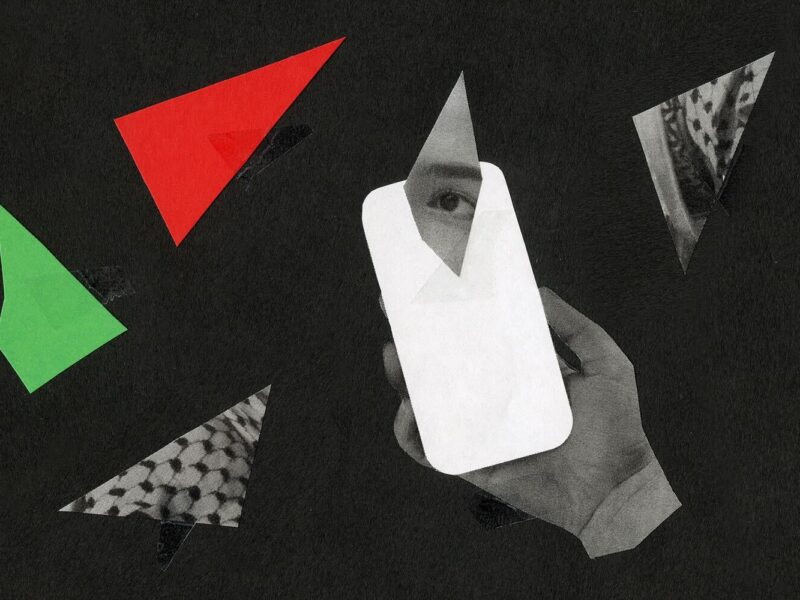Has the proliferation of electronic echo chambers hollowed out our ability to separate facts from feelings?
In Plato’s “Allegory of the Cave” a seminal sequence in his Republic, the philosopher Socrates describes a group of people who have spent their lives chained in a cave, facing a blank wall. Through an opening above their heads, fragments of the outside world are projected in the form of shadows, cast by a fire. But because they have no knowledge of the true nature of the world, the people chained in the cave experience the shadow puppets as accurate depictions of the forms themselves.
It is one of the most famous passages in Western philosophy and, while its exact meaning has been debated for millennia, one of its central concerns is clearly the role that knowledge—i.e., information, facts, and truth – plays in the construction of social reality. And, above all, in politics. How can we ensure that truth is the foundation for political decision making?
Plato’s attempt to puzzle through these questions, though written some 2,300 years ago, weighs heavily on the present. Today, we are in a halcyon era of disinformation and propaganda—much of which is state-sponsored. But our contemporary shadow theatre is disturbing not merely for the proliferation of “fake news,” or the widespread belief in hysterical, reactionary conspiracy theories like Q-Anon.
What’s truly alarming is that human beings are being evacuated from the political process. Artificial entities—bots, deep fakes, even artificial intelligence (AI)— are beginning to sway the perceptions of voters to such an extent that they are, essentially, being mechanized.
To be clear, actually existing citizens are still, nominally, forming opinions and casting votes. But they are being influenced by complex, malign algorithms to such an extent that they—we—are at risk of turning into mere push-button appendages. The bots cannot vote, of course, but they have enormous power to shape the perceptions of human voters. This is extremely dangerous.
Rather than living in a “simulated reality,” as tech billionaire Elon Musk recently speculated, we are seeing the dawning of something more plausible and more sinister: democratic politics shaped, moved, and determined by a simulated public.
Consider the case of Serbia. In April last year, Facebook identified and deleted more than 8,500 “troll” accounts which had systematically engaged in “inauthentic coordinated activity” to boost posts by Aleksandar Vucic, the country’s president, and his ruling SNS bloc. They were also used to swarm Vucic’s critics. This army of trolls had been at work for years, creating a “parallel reality where everything in Serbia is great, and critics are simply enemies of the state.”
A stark illustration of this new, synthetic political regime came a few weeks later, when in the context of the country’s parliamentary election campaign, Vucic held a bizarre, virtual kickoff rally. Surrounded by more than a hundred square monitors, ostensibly showing supporters of his government from all over the country—who, in true proto-authoritarian fashion, struggled to contain their exuberance at seeing their leader take the stage— Vucic stood alone and spoke to the wall of disembodied faces for 20 minutes. As the president spoke, he was accompanied by a soft melody that would shift in tenor to match the contents of his speech.
The pandemic forced Vucic and the SNS to abandon traditional mass rallies, but it also gave them the opportunity to experiment with something even better: a totally controlled environment, a panopticon of adoration for the great leader—complete with a stirring soundtrack.
In June came the payoff: the SNS won a crushing victory, securing 180 seats in the 250-member National Assembly. Its coalition partners won another 42 seats. The main opposition blocs boycotted the elections, but the results would probably not have been very different even if they had run. In the 2017 presidential elections, Vucic won the first round with 55 percent of the vote. His nearest opponent failed to crack 17 percent.
On one level, this is the familiar trajectory of an illiberal regime veering toward outright autocracy. Vucic’s control of the print and electronic media, for instance, is something he largely learned from his mentor Slobodan Milosevic. The use of mass media to maintain control and incite violence was not, of course, invented by Milosevic.
But the contemporary conflagration of bots, deep fakes, and extremism-promoting algorithms is more than the sum of its parts. And it is not unique to Serbia. All over the democratic world, large segments of the public have fallen under the sway of illiberal movements and regimes, who have in turn tightened their grip on them by unleashing massive digital influence and surveillance mechanisms. These are proving so adept at creating partisan echo chambers, that they are birthing a whole new form of political society.
Already, large segments of the American public believe, falsely, that the 2020 presidential election was “stolen” from Donald J. Trump through an elaborate, international conspiracy. That view is reinforced through an expansive ecosystem of right-wing disinformation media. Their stories are promoted by untold numbers of bot accounts that originate both inside and outside the United States.
In this maelstrom, the conspiracy theorists, the fantastical worlds they have collectively (if unconsciously) constructed via social media, and the politically-directed bots and algorithms that signal boost their alchemy, there is the appearance of frenetic public discourse. Except all of it is make-believe, all of it is a kind of synthetic idiocy.
The result of this combination of traditional and emerging forms of propaganda is not merely a more ignorant public than in decades prior. We are witnessing the emergence of forms of social control in (erstwhile) democratic societies that were previously reserved to totalitarian regimes—or science fiction. And genuine democracy cannot survive the production of such industrialized, mechanized ignorance.
Nor can civil society endure such a phenomenon. Our modern conceptions of that term originate with what Plato and other classical philosophers called the polis; meaning, literally, city, but conceptually signifying the idea of an informed, participatory society in which all citizens share the burdens of debating and resolving the issues facing the community. We have never quite achieved this level of enlightened egalitarianism, but the whole concept of modern citizenship, and accompanying theories of its rights and obligations, is rooted in this notion.
What Plato did not quite anticipate is a future in which the polis and the demos (the people) disappears entirely. Not because they have been silenced by a despotic king per se, but because have been convinced by digital phantasms to willingly march themselves into underground caverns, and chain themselves to the walls. And there they will sit, periodically raising their hands to affirm being governed by shadows.
This is more than the reverse of what the ancients believed the process of enlightenment would precipitate. Plato’s cave was an allegory for the process of intellectual liberation. The rise of this synthetic public discourse is dissolving the very idea of the public square and the rational, autonomous public. And it may soon leave behind a world inhabited only by automatons, ones of flesh and blood but of no agency.



